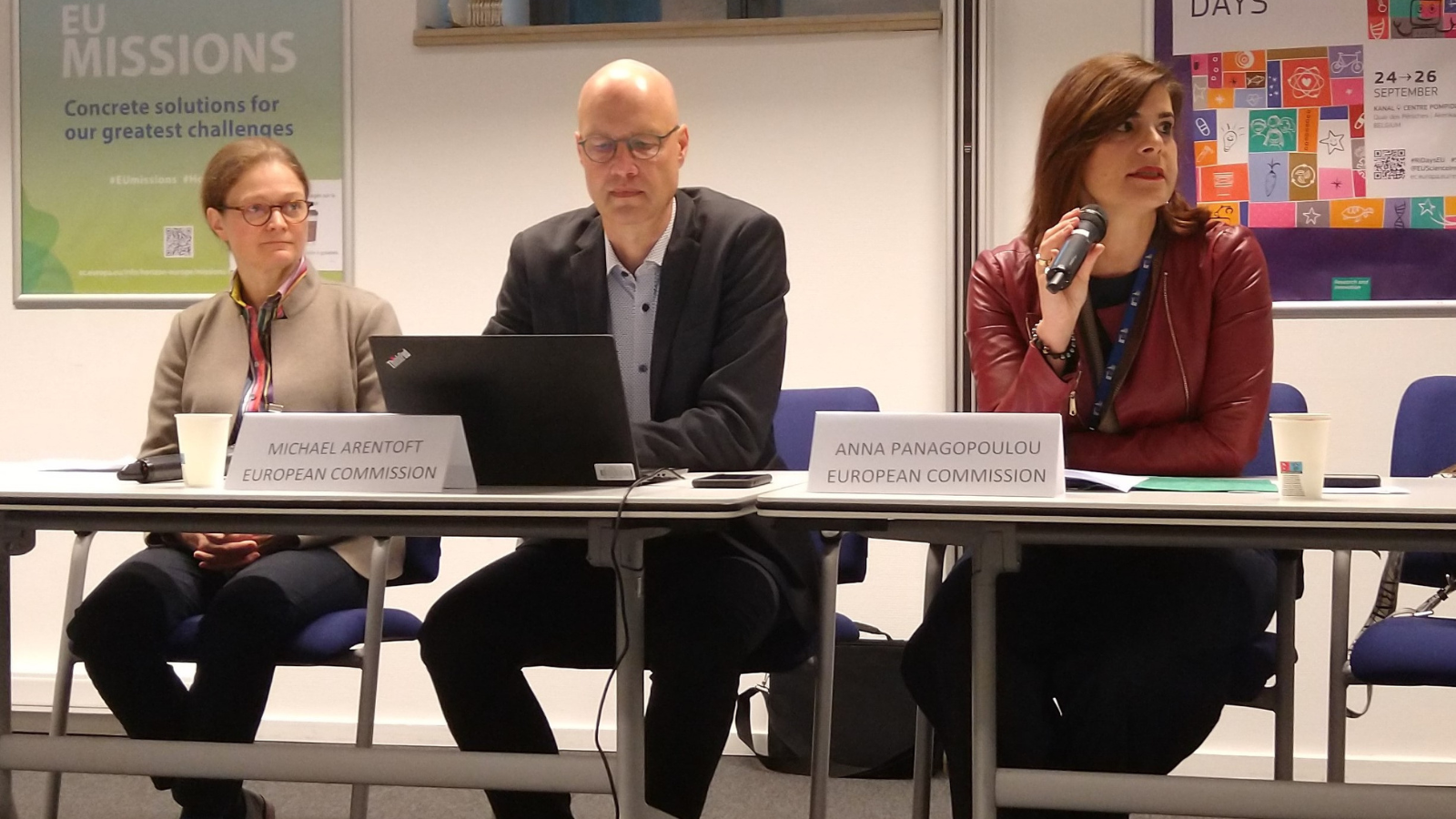
Antje Keppler (ERIC Forum Chair), Michael Arentoft (DG Research & Innovation) and Anna Panagopoulou (Director of ERA & Innovation, DG Research & Innovation) at the meeting for fostering the ERICs
On June 19th, representatives of ERICs and ERIC Forum, along with ERIC Committee members from EU Member States and Anna Panagopoulou and Michael Arentoft from the European Commission, convened in Brussels to discuss the benefits of ERICs as well as the remaining challenges in the implementation of the ERIC Regulation. The discussion evolved also around the revision of the ERIC Practical Guidelines: a crucial step toward the future development of the ERIC Framework and the enhancement of ERICs’ role within the European Research Area.
The ERIC Regulation is truly a success story. It provides a clear legal framework for governance, operations, and scientific endeavors, thereby enabling the establishment and operation of European Research Infrastructures. Despite its significance, its implementation at the national level has experienced several challenges, as ERICs face the complexities of their specific disciplines and national contexts.
To further strengthen the ERIC Framework and better address the inherent and important diversity of the ERIC community, the European Commission began reviewing the guidelines supporting the implementation of the ERIC regulation. The meeting in Brussels served as an additional consultation to the expert group and was an opportunity to discuss the remaining challenges with ERICs.
Today, ERICs combine their primary missions with addressing major scientific and societal challenges that Europe aims to tackle. Their high impact, relevance, and sustainability would be improved with a revised set of Guidelines that provide a unified interpretation for the implementation the ERIC Regulation.
During the meeting, ERIC Forum Chair Antje Keppler first presented the currently 28 ERICs as strategic assets in the ERA and their added value to the European ecosystem of scientific communities. In the following, ERICs contributed their operational knowledge accumulated over 13 years, supported by a paper developed within the Second Implementation project for the ERIC Forum.
Initially shared with European Commission representatives during the ERIC Forum Annual Meeting held in February, the “Recommendations on How to Address the Challenges Related to the ERIC Regulation” document identifies the most critical challenges and proposes mitigation strategies as well as policy suggestions. According to Luc van Dyck of Euro-Argo ERIC, who coordinated the internal group dedicated to this Recommendations paper:
“The issues and challenges we identified largely overlap with those described in the – excellent – EGERIC Report and EC Third Report on the application of the regulation.”
The European Commission “Practical Guidelines for the implementation of the ERIC regulation” is a crucial document with the potential to address some of the highlighted issues by providing a unified interpretation. The current revision also offers the chance to improve it by incorporating best practices based on the operational knowledge from the ERIC community.
Today, ERICs combine their primary missions with addressing major scientific and societal challenges that Europe aims to tackle. Their high impact, relevance, and sustainability could still be improved further, starting with a revised set of Guidelines that address some of the main challenges ERICs face during their implementation.
ERIC Forum suggestions for the revision of the Guidelines include refining the definition of the scope of an ERIC, proposing a common reporting methodology to better assess the full value of an ERIC, qualifying and quantifying the measure of “limited” economic activity, promoting the implementation the VAT exemptions, offering a coherent set of job titles to facilitate staff mobility within and between ERICs, and providing more precise instructions for incorporating third countries and intergovernmental organizations.
Among the recommendations shared, ERIC representatives also suggested to include the description of ERICs’ core activities in the guidelines or better in the Regulation, which forms the basis for defining members fees. It should encompass all essential activities to ensure sustainable operations and development of ERICs. This would allow that key activities like dissemination or international outreach can be sufficiently financed, which currently in many cases need to find support through project funding.
As many EU countries still need to fully integrate the ERIC status into their national legislation, updating the Guidelines could ensure that these Member States can directly benefit and in the future provide better the optimal application of the ERIC provisions in their national context.
Contributing to the revision of the guidelines via the ERIC Forum is an opportunity for the ERICs to set the frame for the discussion. As Luc van Dyck commented,
“Personally, I greatly appreciate the fact that the Commission is genuinely listening to us.”